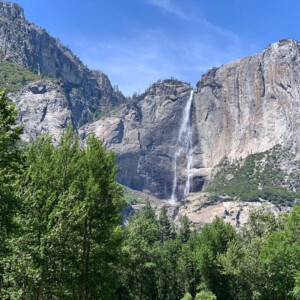
1 Praise the LORD! Praise the name of the LORD; Praise Him, O you servants of the LORD!
2 You who stand in the house of the LORD, In the courts of the house of our God,
3 Praise the LORD, for the LORD is good; Sing praises to His name, for it is pleasant.
4 For the LORD has chosen Jacob for Himself, Israel for His special treasure.
5 For I know that the LORD is great, And our Lord is above all gods.
Psalm 135 begins the last section of the book of Psalms which focuses on worship and praise of the LORD. The emphasis of this psalm is on praising the Lord because of who He is and what He has done for His people. It opens with the command to "Praise the LORD" that is repeated four times. It ends and concludes with the command to "Bless the LORD,” that is also repeated four times. The name, "Jehovah" is found thirteen times in the psalm, and the familiar phrase "praise the LORD" ("hallelujah") is repeated at least six times.
Psalm 135 has been called "a mosaic" because it contains numerous quotations from other parts of Scripture, no doubt collected by a temple liturgist who, led by the Spirit, put the material together for a special occasion of worship. He obviously knew the Scriptures well as he either quotes or alludes to so many of them. Psalms 135:7 is almost identical with Jeremiah 10:13. The passage contained in Psalms 135:13 is to be found in Exodus 3:15. Psalms 135:14 can be found in Deuteronomy 32:36. The closing verses, Psalms 135:8-12, are in Psalms 136 and from Psalms 135:15 to the end it appears to be a repetition of Psalms 115:1-18.
I’m convinced that the LORD loves it when we repeat His own Word back to Him in our prayers, praise and worship!
Some students think that the occasion was the one described in Nehemiah 9, after the walls had been rebuilt and the people gathered to read God’s Word for a fourth of a day and confess their sins for another fourth of a day. Then the leaders lead into a time of prayer that is recorded as one of the longest prayers in the Bible. In Psalm 135, verses 2 and 5, the psalmist uses the phase, "our God", which is characteristic of the book of Nehemiah (4:4, 20; 6:16; 9:32; 13:2). The Jewish people spoke of Jehovah as "our God" to affirm their separation from the false gods of the nations around them (vv. 15-18).
In verses 1-4, the psalmist first acknowledges that Israel is a “chosen people and that the Lord Is “Our God”. It was God's election of Israel that set them apart from the rest of the nations, for they are "his people" (vv. 12, 14; 100:3; Deut. 32:9, 36, 43, 50). Israel is His treasured possession (v. 4; Ex. 19:5; Deut. 7:6; 14:2) and He gave them their land (v. 12). His temple stood in Jerusalem and His priests offered Him praise and sacrifices. The Jewish people were set apart to honor the name of the Lord and to bear witness to other nations that Jehovah is the one true God.
Why did God choose Israel? Deuteronomy 7:6-8 tells us why: “For you are a holy people to the LORD your God; the LORD your God has chosen you to be a people for Himself, a special treasure above all the peoples on the face of the earth. The LORD did not set His love on you nor choose you because you were more in number than any other people, for you were the least of all peoples; but because the LORD loves you, and because He would keep the oath which He swore to your fathers, the LORD has brought you out with a mighty hand, and redeemed you from the house of bondage, from the hand of Pharaoh king of Egypt.” The LORD chose them because "the LORD is good" (v. 3).
The church today is an elect people, saved by the grace of God (Rom. 1:6; 8:30; Eph. 1:4) and called to glorify God (1 Peter 2:9-12). All believers are priests of the Lord, and we have been called to praise and worship Him, and in so doing, make His Name, Jesus, famous in all the earth! May the LORD help us to do so today!
God bless!
More Episodes
 2024-10-06
2024-10-06
 2024-10-05
2024-10-05
 2024-10-04
2024-10-04
 2024-10-03
2024-10-03
 2024-10-01
2024-10-01
 2024-09-29
2024-09-29
 2024-09-28
2024-09-28
 2024-09-24
2024-09-24
 2024-09-22
2024-09-22
 2024-09-21
2024-09-21
 2024-09-20
2024-09-20
 2024-09-19
2024-09-19
 2024-09-18
2024-09-18
 2024-09-17
2024-09-17
Create your
podcast in
minutes
- Full-featured podcast site
- Unlimited storage and bandwidth
- Comprehensive podcast stats
- Distribute to Apple Podcasts, Spotify, and more
- Make money with your podcast
It is Free
- Privacy Policy
- Cookie Policy
- Terms of Use
- Consent Preferences
- Copyright © 2015-2024 Podbean.com






